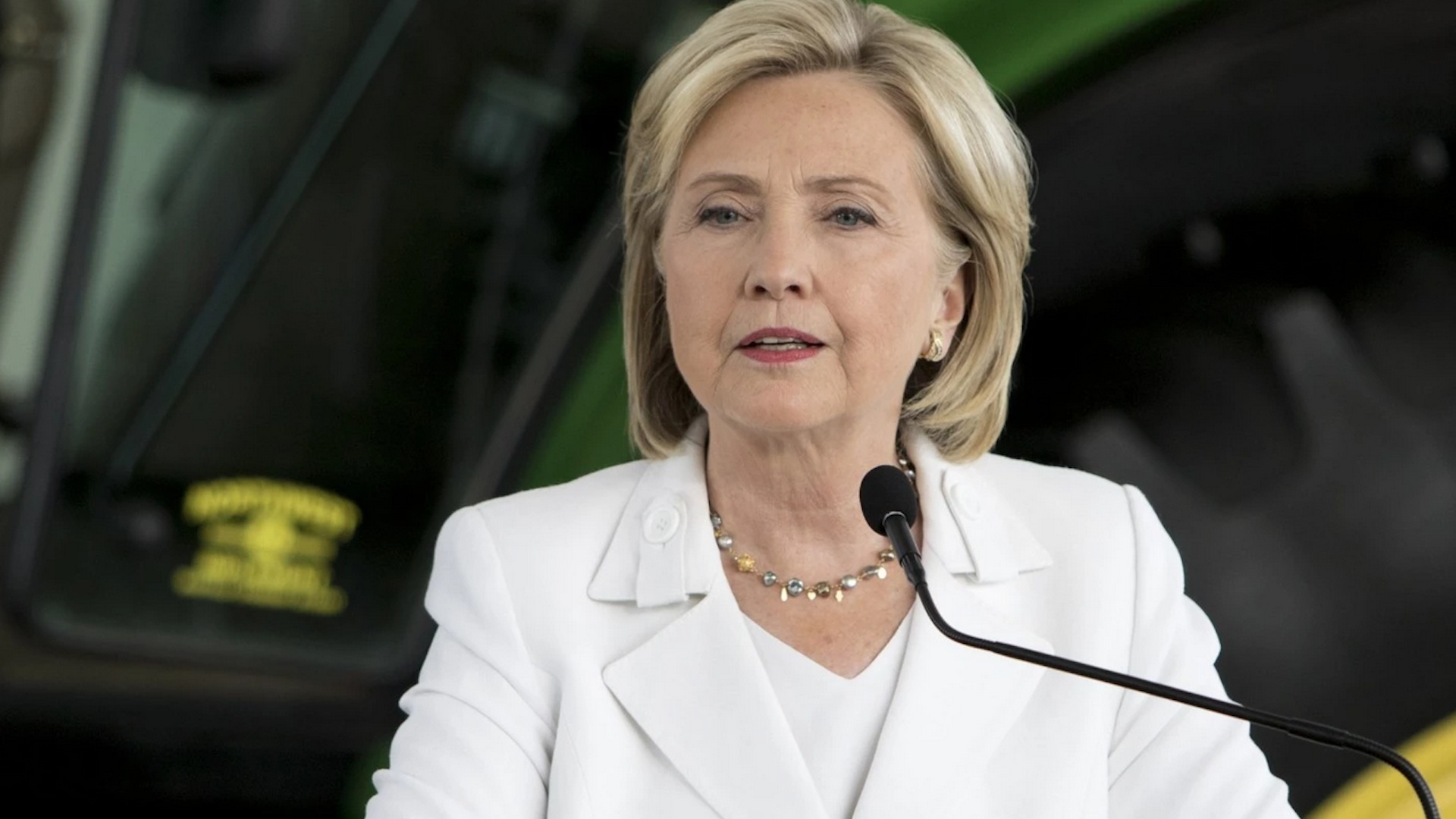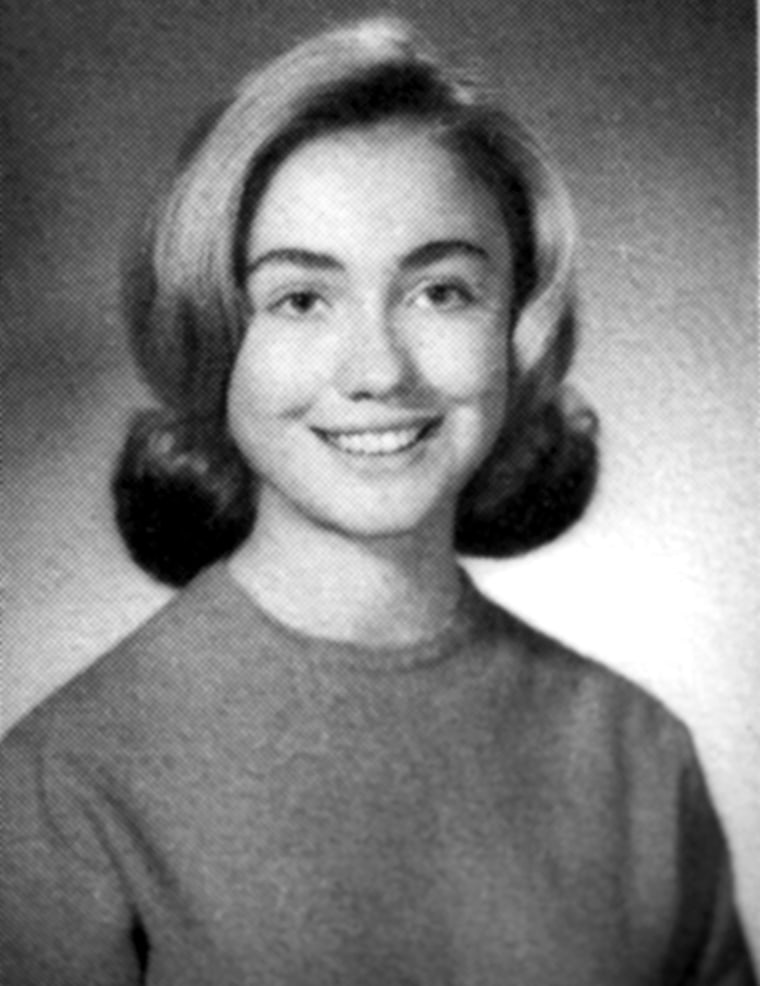In today's digital age, the phrase "naked Hillary Clinton" has sparked significant debate and curiosity across various platforms. It is essential to address this topic with sensitivity and accuracy, ensuring that all claims are verified and rooted in truth. As we navigate through the sea of misinformation, it is crucial to separate fact from fiction.
With the rise of social media and the internet, sensitive topics such as these often gain traction, leading to misinformation and conspiracy theories. This article aims to delve into the truth behind the term "naked Hillary Clinton," exploring the context and addressing the underlying issues that have contributed to its popularity.
We will analyze the implications of such discussions, emphasize the importance of respecting privacy, and provide a balanced perspective on the topic. By the end of this article, readers will have a comprehensive understanding of the subject matter, backed by credible sources and expert insights.
Read also:Idea Ingram Hills A Comprehensive Guide To Discovering Hidden Gems
Table of Contents
- Biography of Hillary Clinton
- Origins of the Controversy
- Impact on Public Perception
- The Importance of Privacy
- Role of Media in Shaping Narratives
- Legal Implications
- Ethical Considerations
- Conspiracy Theories Surrounding Hillary Clinton
- Preventing the Spread of Misinformation
- Conclusion
Biography of Hillary Clinton
Hillary Diane Rodham Clinton is a prominent American politician, diplomat, and lawyer. Born on October 26, 1947, in Chicago, Illinois, she has served in various significant roles throughout her career, including as the First Lady of the United States (1993–2001), U.S. Senator from New York (2001–2009), and U.S. Secretary of State (2009–2013).
Key Facts About Hillary Clinton
| Full Name | Hillary Diane Rodham Clinton |
|---|---|
| Date of Birth | October 26, 1947 |
| Place of Birth | Chicago, Illinois, USA |
| Profession | Politician, Diplomat, Lawyer |
| Education | Wellesley College (B.A.), Yale Law School (J.D.) |
Hillary Clinton's extensive career in public service has made her a household name. However, her prominence has also made her a target for scrutiny and criticism, leading to the emergence of controversial topics such as "naked Hillary Clinton."
Origins of the Controversy
The phrase "naked Hillary Clinton" often surfaces in discussions surrounding privacy breaches, leaked information, or conspiracy theories. It is crucial to trace the origins of this controversy to understand its context fully.
One of the primary sources of this phrase stems from the WikiLeaks scandal during the 2016 U.S. presidential election. The release of private emails from the Democratic National Committee and Clinton's campaign manager, John Podesta, fueled speculation and conspiracy theories about her personal life.
Furthermore, the rise of deepfake technology has contributed to the spread of fabricated content, making it challenging to distinguish between reality and fiction. This technological advancement has exacerbated concerns about privacy and the misuse of personal information.
Impact on Public Perception
The controversy surrounding "naked Hillary Clinton" has significantly influenced public perception of her character and integrity. Misinformation spreads rapidly on social media platforms, often without verification, leading to skewed narratives.
Read also:Sift Glutenfree Your Ultimate Guide To Living Healthier
Key Effects on Public Perception
- Increased skepticism about political figures
- Amplification of conspiracy theories
- Diminished trust in traditional media outlets
- Heightened awareness of digital privacy issues
Addressing these effects requires a concerted effort from both media organizations and individuals to promote accurate and ethical reporting.
The Importance of Privacy
Respecting an individual's privacy is a fundamental right that should not be compromised, regardless of their public status. The "naked Hillary Clinton" controversy highlights the dangers of invading someone's personal life for entertainment or sensationalism.
According to the Pew Research Center, 86% of adults in the United States are concerned about how companies use their personal data. This statistic underscores the growing need for stronger privacy protections and ethical guidelines in digital spaces.
Role of Media in Shaping Narratives
Media outlets play a pivotal role in shaping public opinion and narratives. In the case of "naked Hillary Clinton," responsible journalism is essential to prevent the spread of false information.
Credible sources such as The New York Times, The Washington Post, and BBC News have consistently emphasized the importance of fact-checking and verifying sources before publishing content. This commitment to accuracy helps maintain trust with their audience.
Legal Implications
Violating someone's privacy can have severe legal consequences. In the United States, laws such as the Wiretap Act and the Stored Communications Act protect individuals from unauthorized access to their private communications.
Furthermore, the European Union's General Data Protection Regulation (GDPR) sets stringent guidelines for data protection and privacy, ensuring that individuals have control over their personal information.
Ethical Considerations
Discussing sensitive topics like "naked Hillary Clinton" raises important ethical questions about the boundaries of free speech and respect for privacy. Ethical journalism demands a commitment to truth, transparency, and accountability.
Organizations such as the Society of Professional Journalists (SPJ) provide ethical guidelines for journalists, emphasizing the importance of minimizing harm and respecting individuals' rights.
Conspiracy Theories Surrounding Hillary Clinton
Hillary Clinton has been at the center of numerous conspiracy theories over the years. From allegations of corruption to unfounded claims about her personal life, these theories often lack credible evidence and perpetuate misinformation.
Fact-checking websites such as Snopes and Politifact have debunked many of these claims, highlighting the need for critical thinking and skepticism when encountering sensational stories.
Preventing the Spread of Misinformation
Combatting misinformation requires a multi-faceted approach involving education, technology, and collaboration. Here are some strategies to prevent the spread of false information:
- Encourage media literacy and critical thinking
- Utilize fact-checking tools and platforms
- Support credible news sources and journalists
- Engage in open and honest dialogue about controversial topics
By adopting these strategies, individuals can contribute to a more informed and responsible digital landscape.
Conclusion
The phrase "naked Hillary Clinton" has sparked significant debate and curiosity, but it is essential to approach this topic with sensitivity and accuracy. By examining the origins of the controversy, analyzing its impact on public perception, and addressing ethical considerations, we can gain a deeper understanding of the issues at hand.
We encourage readers to seek out credible sources, engage in critical thinking, and respect the privacy of individuals. Your actions can help create a more informed and responsible society. Share this article with others and continue the conversation in the comments below. Together, we can combat misinformation and promote truth.


